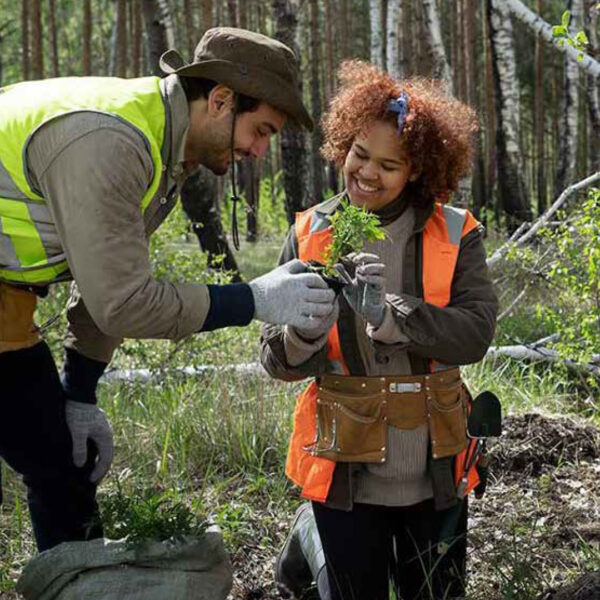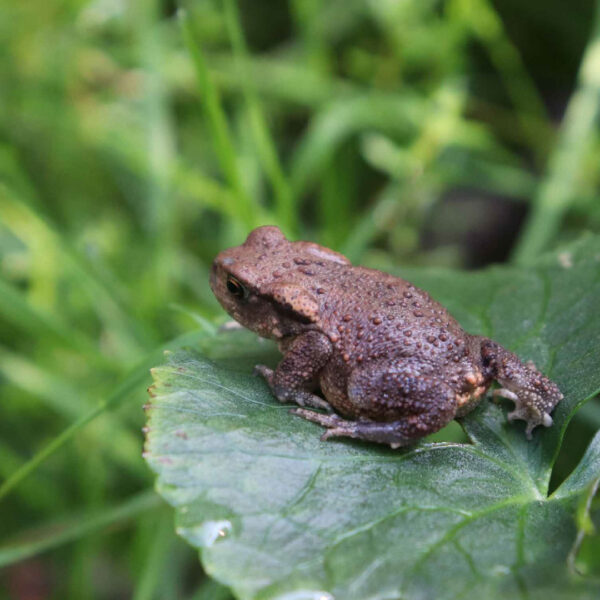Our oceans occupy over two thirds of our planet. And, while our efforts to address global warming on land have been very visible – preserving ancient rainforests, planting new ones, rewilding, rewetting peatbogs, marshes and fens, we are less aware of the vast potential for climate and biodiversity recovery hidden beneath the waves.
The health of our marine environments and ecosystems is critical to the future of the whole planet. To date we have been their greatest threat – pursuing unsustainable fishing activities, such as bottom trawling, and allowing millions of tonnes of plastic to enter the sea every year. Scientists estimate that there are now more than 171 trillion pieces of plastic floating in the world’s oceans – up from a mere 16 trillion in 2005.
When we stop these activities, the sea demonstrates extraordinary resilience, often recovering far more quickly that scientists could have imagined. Protecting marine environments is the most natural and effective way there is to protect our planet and all of our futures. In this blog, we’ll talk about what you can do, both as an individual and as a tourism, hospitality or events business with influence over the many travellers and visitors you serve.
Take plastics out of the equation – and the ocean
The amount of plastic that gets into the ocean is staggering and it has a devastating effect in aquatic environments. Birds, mammals, fish and turtles frequently become entangled in plastics leading to slow painful deaths. Smaller pieces of plastic can often be mistaken for food and there are heartbreaking stories of chicks dying of malnutrition after being fed a diet of plastic. Most plastic is designed to be thrown away, and in an ideal world, it would be recycled. But only 10% of the plastic produced globally gets recycled and, because it floats, discarded plastic ends up being carried into water courses and ultimately, the sea where it fragments and breaks down into microplastics. The best way to stop this is not to use the plastic in the first place. Removing single use plastics such as straws, plastic cups and cutlery from your business entirely is a great first step. Moving from single-use plastic bottles to refillable and reusable alternatives is another way to reduce your dependency on plastic and the waste is leads to.
Let’s get physical.
There’s no more direct way to get plastics out of our oceans than going and physically removing it. Beach cleans are incredibly satisfying and there are lots of organisations, such as Surfers Against Sewage that promote these.
To arrive on a beach peppered with the detritus of human life and to walk away with a bag of recycling and a pristine beach behind you could not be more fulfilling. And that kind of activity will appeal to travellers and tourists who are increasingly keen to leave places better than they find them.
Of course, you don’t have to be beside the sea to play your part. Our lakes, streams, rivers and watercourses all lead, one way or another, to the ocean so you can tackle marine pollution by organising and coordinating waterside cleanups wherever your business is. Seaful is another charity doing amazing work to raise awareness of the connectedness of our waterways to the sea.
There are more sophisticated and technical ways of removing the plastics found further out to sea. Schemes that encourage fishermen to collect fishing tackle with their catches and bring it ashore for recycling are worth supporting. But even more worthy of your support are the ambitious charities and organisations such as 5 Gyres and The Ocean Cleanup who are devoted to removin the vast plastic gyres floating in our, otherwise pristine, oceans.
Get people into (and onto) the water
Physically immersing yourself into an environment is the best way to understand and appreciate it. By encouraging guests to actively appreciate the aquatic and marine environments, they will value them and associate more deeply. How better to appreciate the importance and wealth of biodiversity contained in a coral reef than to swim over it? While we may not all have coral reefs on our doorsteps, we will have water-based adventures. Seagrass meadows and Kelp forests are great places for snorkel safaris and taking a kayak, canoe or paddle board down a river is the perfect way to appreciate the biodiversity needed to supply our seas with a steady flow of pure unpolluted water.
Remove unsustainability from the menu
Fish and seafoods are often seen as the healthy option on the menu. But healthy for who? It they are not caught or farmed sustainably, they are a disastrous option for the planet’s health and ultimately ours.
It’s your duty, as a sustainable host, to ensure that any seafood you serve has been caught or farmed sustainably. There are various accreditation bodies most notably, the Marine stewardship Council who provide certification for sustainable fisheries. They contribute to the health of the world’s oceans by recognising and rewarding sustainable fishing practices, influencing the choices people make when buying seafood and working with their partners to transform the seafood market to a sustainable basis.
Reduce your carbon footprint
Your footprint on earth has an even greater impact underwater. Climate change is one of the greatest threats to the health of marine ecosystems which are highly vulnerable to changes in temperatures and the currents they power.
Coral reefs are particularly vulnerable to climate change which is leading to rising ocean temperatures and increased ocean acidity due to increased absorption of atmospheric CO₂. Both of these factors lead to coral bleaching events, in which corals expel the algae that provide them with their food and colour. This weakens them and can, ultimately, kill them completely. Ocean acidification also limits coral’s ability to build and maintain their skeletons, making them even more susceptible to damage.
Reducing your business’s carbon footprint by using less energy, switching to renewables, choosing sustainable transportation, and supporting policies to address climate change will all help the oceans to maintain their equilibrium.
Switch to Eco-Friendly Products
Anything you use that has a drainage pipe, is effectively connected to the sea, so anything that goes through it will, ultimately, enter the marine environment. While sewage and water treatment plants can filter some things, they cannot remove everything – microplastics being a case in point. Many everyday products, including cosmetics and cleaning supplies, contain chemicals that can harm marine life. By choosing eco-friendly alternatives that are less toxic and biodegradable you will be helping to reduce ocean pollution.
It’s also worth bearing in mind that artificial textiles shed microfibres when washed and these too will make their way into marine environments. A single wash can release millions of microfibres so switching bedlinen, towels and uniforms to natural, biodegradable fibres, such as cotton, linen, bamboo and wool, will help reduce your impact on the marine environment still further.
Similarly, plastic sponge scourers shed plastic microfibres with every use – which is why they lose their scratchiness. Switch to scourers made of steel, iron or natural bristle brushes and you’ll find they last longer and preserve marine ecosystems.
Are you protecting yourself and harming the sea?
Slapping on a bit of sun cream may seem like the most natural thing in the world. But two of the most common ingredients of sun cream – oxybenzone and octinoxate – can harm marine life. These chemicals are deadly to corals leading to potentially lethal bleaching. Both chemicals can also cause DNA damage in the coral leading to growth defects.
Danger to marine life is not limited to corals and can also directly impact certain species of fish, sea urchins and shrimp. However, the fact that these chemicals have such a profound effect on coral reef ecosystems, means that they have the potential to detrimentally affect the broad biodiversity of species that rely on corals for their survival.
There is some good news for our skin and the environment. There are now reef-safe sun creams available that are free from either of these ingredients and can protect human skin and the planet. If your tourism business is close to coral reefs of any kind and the wealth of marine biodiversity they support, engage with visitors to talk about the risks and the solutions.
Summary
This is, by no means, an exhaustive list of the measures you can take to protect marine ecosystems and their incredible biodiversity, but we hope we have whetted your appetite. People care deeply about the sea and our coastlines are the most revered of all holiday destinations. As leaders in the tourism and hospitality industry, we can all play our part in helping our oceans to perform in ways that will sustain our planet and talk to visitors and travellers about how they can get involved to make a difference.









